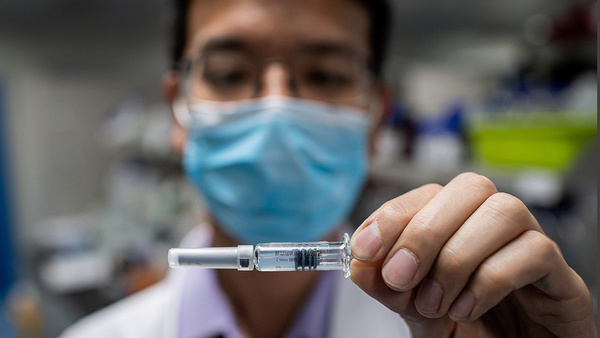KARACHI – In a landmark achievement for Pakistan’s medical and health sciences, the Dow University of Health Sciences (DUHS) has successfully developed the country’s first indigenous human anti-rabies vaccine at lab scale, using a locally isolated rabies virus strain. The breakthrough is being hailed as a critical step toward self-reliance in vaccine production and national preparedness against a disease that claims thousands of lives annually.
This marks the first time a human vaccine in Pakistan has been developed from a completely indigenous biomolecule, according to pharmaceutical officials and confirmation from DUHS. Previously, Pakistan’s limited local production of anti-rabies vaccines, including DUHS’s own Dow Rab, relied on imported Chinese raw material.
The university now plans to proceed with clinical trial batch manufacturing and seek approval from the Drug Regulatory Authority of Pakistan (DRAP) to bring the vaccine closer to large-scale national use.
The development comes amid growing concern about the sustainability of Pakistan’s current vaccine supply model. At present, the country imports virtually all of its vaccines, including those under the Expanded Programme on Immunisation (EPI), at an estimated annual cost of Rs26 billion—most of it subsidised by international donors like GAVI, the Vaccine Alliance, UNICEF, and the WHO.
This arrangement, however, is time-bound. GAVI’s support is set to expire by 2031. When that happens, the cost of importing vaccines is expected to surge to Rs100 billion annually—nearly four times the federal health budget, which stood at Rs27 billion this fiscal year.
Public health experts see the new vaccine as a national imperative. “This purified, inactivated, lyophilised vaccine developed from a locally isolated strain is not just a medical innovation—it’s a blueprint for Pakistan’s future vaccine independence,” DUHS stated in its official communication.
Rabies, primarily transmitted through dog bites, remains a deadly but preventable disease in Pakistan. Government estimates suggest that between 2,000 and 5,000 people die annually from rabies. The actual number of survivors remains unknown due to lack of comprehensive reporting, but health experts believe millions of vaccine doses are administered each year.
Despite growing demand, Pakistan’s dependency on imported anti-rabies vaccines leaves the system vulnerable to global supply chain shocks and funding cuts. The indigenous vaccine, once approved, could relieve the pressure on the national exchequer, ensure continuous availability, and address access gaps, particularly in rural areas where dog-bite cases are most frequent.
The vaccine development project was backed by the World Bank and implemented through the Higher Education Commission (HEC). Dow University’s biotechnological advance was made possible by its in-house development of a locally isolated rabies virus strain—a scientific milestone in Pakistan’s biomedical research history.
“This will be a turning point in our fight against vaccine dependence,” said a senior university official, adding that after successful lab formulation, the next stage will be pilot production for DRAP’s clinical approval process.




